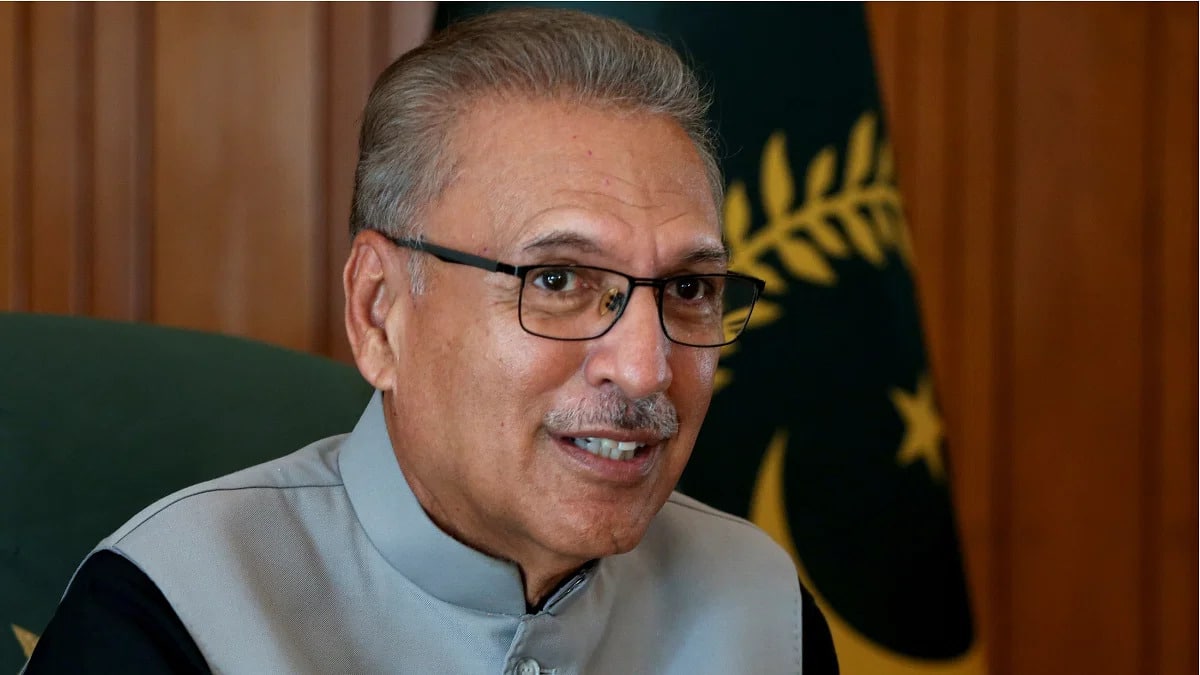The recent crisis in Pakistan, involving the President’s denial of signing two controversial bills, the Official Secrets (Amendment) Bill and the Army Act (Amendment) Bill 2023, has created significant uncertainty in the country. These bills have raised concerns as they expand the military’s authority to respond to any activities that may defame or threaten it and benefit the enemy.
The current situation highlights a power struggle between the army and civilian leaders. The army-backed caretaker government, responsible for governing the country until parliamentary elections, asserts that if the President does not approve or reject a bill within 10 days, it automatically becomes a law. This move signifies the army’s attempt to safeguard itself against potential attacks from civilian leaders.
As God is my witness, I did not sign Official Secrets Amendment Bill 2023 & Pakistan Army Amendment Bill 2023 as I disagreed with these laws. I asked my staff to return the bills unsigned within stipulated time to make them ineffective. I confirmed from them many times that…
— Dr. Arif Alvi (@ArifAlvi) August 20, 2023
The president tweet yesterday “As God is my witness, I did not sign Official Secrets Amendment Bill 2023 & Pakistan Army Amendment Bill 2023 as I disagreed with these laws. I asked my staff to return the bills unsigned within stipulated time to make them ineffective. I confirmed from them many times that whether they have been returned & was assured that they were. However I have found out today that my staff undermined my will and command. As Allah knows all, He will forgive IA. But I ask forgiveness from those who will be effected.”
The political drama unfolds alongside the army chief Asim Munir’s alleged plan to seize control of the country. As part of this plan, he appointed Anwarul Haq Kakar, a relatively unknown senator from Baluchistan, as the Prime Minister of the caretaker government. The former Prime Minister, Imran Khan, has been openly critical of the army for months, accusing them of being influenced by the United States. Following the dismissal of Khan’s government in April 2022, his supporters launched violent protests, targeting army installations and senior commanders’ residences. In response, the army establishment cracked down on Imran and the leaders of his Pakistan Tehreek-e-Insaf party.
The Official Secrets (Amendment) Bill 2023 includes provisions that criminalize acts that create public disorder or go against the state. It also penalizes the unauthorized disclosure of intelligence agency identities, informants, or sources and punishes anyone who defames or spreads hatred against the army. Furthermore, the Army Act prohibits military personnel from engaging in political activities for up to two years after retirement and for up to five years for those with sensitive duties.
Despite the bills being passed by both houses of the Parliament and sent to the President for approval between August 2 and August 9, the President has now denied signing them. This has led to a debate regarding whether the matter should be resolved by the next national assembly or by the Supreme Court.
The current controversy surrounding the bills has left their status uncertain, posing an insult to the state of Pakistan, the Parliament, legislation, and its citizens. It remains unclear how this issue will be resolved and how the army’s influence will impact Pakistan’s political future.


